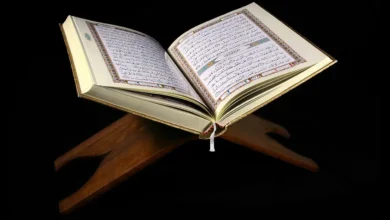Beyond the finish line (Part IV)

By Yusuf Bulafu
(Inspired by the paradigm of finite and infinite games as articulated by James P. Carse)
Assalam alaykum warahmatullahi wabarakatuh
Cont’d …
Existential flexibility: Changing form, keeping faith
Infinite players are not afraid to disrupt themselves. They understand that remaining loyal to the mission may sometimes require abandoning the very tools or strategies that once made them successful. Their flexibility is not rooted in trend-chasing, but in deep commitment to purpose. They don’t confuse the structure with the spirit.
One of the most illustrative failures in this regard is Kodak. The company didn’t collapse because it lacked innovation; it actually invented the digital camera in 1975. But Kodak buried its own invention, fearing that it would cannibalize their film business. They clung to the comfort of what worked yesterday, and in doing so, forfeited their relevance in the world of tomorrow. Their loyalty to a product over a purpose, film over capturing memories, cost them everything.
By contrast, companies that thrive over decades often do so by radically reinventing themselves. Netflix moved from mailing DVDs to becoming a digital streaming giant, and then into a major content creator. What they sold changed, but why they existed; making entertainment easily accessible, remained consistent. This is existential flexibility: the willingness to dismantle what worked in order to stay faithful to what matters.
In Islam, this principle is not only practiced but sanctified. The Prophet Muhammad demonstrated extraordinary flexibility in methods, while remaining absolutely firm on the mission. His goal was always to deliver the truth, build a moral community, and establish justice, but the strategies he employed varied with time, place, and circumstance.
Consider the Treaty of Ḥudaybiyyah. From a strategic lens, it looked like a humiliating compromise. Muslims had to delay their pilgrimage, accept seemingly one-sided conditions, and even allow Quraysh to return defectors. Many companions, including ‘Umar ibn al-Khaṭṭāb, struggled to understand the wisdom behind it, but the Prophet saw the situation in depth. He wasn’t interested in short-term optics, but he was investing in long-term peace and momentum. Within two years, that treaty led to the opening of Makkah.
The scholars who carried the prophetic mission across centuries also embodied this spirit. Imām al-Shāfi‘ī, for instance, changed his legal opinions after moving from Iraq to Egypt, because he encountered new circumstances, new people, and new needs. This wasn’t a betrayal of his integrity; it was a sign of its depth. He wasn’t loyal to a formula; he was loyal to the truth. Such flexibility is not recklessness nor compromise for the sake of popularity, it is sacrifice for the sake of purpose. It is a recognition that truth must be clothed in the language of its time without diluting its essence.
Finite players cling to old tactics, even when they no longer serve. Infinite players are willing to abandon form to protect meaning.
Islam is unchanging in its core values, but ever-adaptive in its expressions. The forms may evolve; the dress, the language, the tools, but the faith remains, burning with the same light that first touched the heart of the Prophet in the cave of Ḥirā’.
Existential flexibility is not about weakening faith. It is about ensuring it survives the storm; intact, dignified, and alive.
To be continued …





